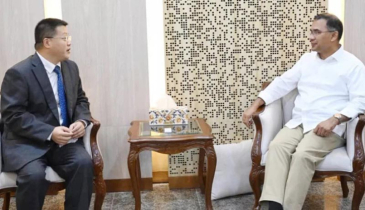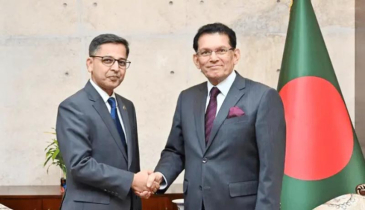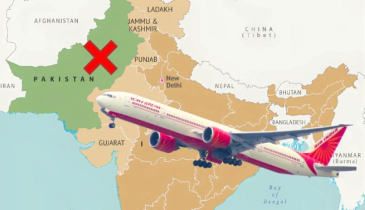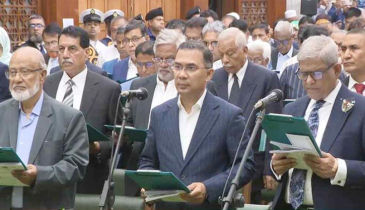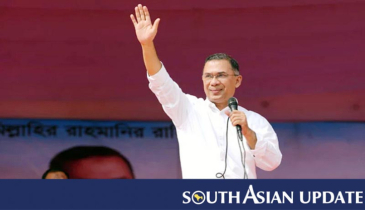Bangladesh, WFP seek more funding to support Rohingya refugees
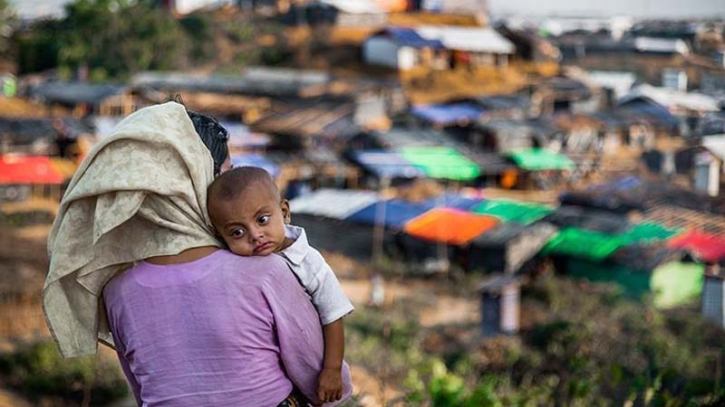
Bangladesh’s Chief Adviser Muhammad Yunus and World Food Program (WFP) Acting Executive Director Carl Skau have renewed calls for greater international funding to sustain food assistance for more than a million Rohingya refugees in Bangladesh, warning that the humanitarian crisis is approaching a breaking point amid dwindling global aid.
The two leaders met in Rome on Tuesday on the sidelines of the UN’s World Food Forum, where they discussed the urgent need to secure new and sustained financing for refugees housed in Cox’s Bazar — the world’s largest refugee settlement.
According to a statement from the Chief Adviser’s Office, Skau emphasized that the plight of the Rohingya remains one of the WFP’s top priorities, but admitted that shrinking donor contributions have forced difficult choices. “The needs are rising, but resources are declining,” he said, underscoring the critical gap in funding for 2025.
More than 1.3 million Rohingya refugees, most of whom fled a brutal military crackdown in Myanmar’s Rakhine State in 2017, remain dependent on international aid for food, shelter, and healthcare. The WFP has repeatedly warned that without additional resources, food insecurity in the camps could worsen rapidly, heightening risks of malnutrition, disease outbreaks, and instability.
During the meeting, Yunus and Skau discussed strategies to tap into non-traditional funding sources, including partnerships with multilateral development banks, philanthropic foundations, and wealthy nations in the Middle East and Asia. They also agreed to advocate for more coordinated global action to prevent the refugee crisis from sliding into neglect.
Skau noted that after renewed commitments from donors including the United States and the United Kingdom, the WFP has managed to maintain its $12 monthly food stipend per refugee, though the amount remains far below pre-2023 levels. Earlier this year, the UN agency was forced to cut food rations by 50% due to a severe funding shortfall, partly linked to broader reductions in U.S. humanitarian assistance through USAID.
Chief Adviser Yunus, a Nobel Peace Prize laureate known for his advocacy of social business and inclusive development, urged the WFP and international partners to explore innovative financing mechanisms to support long-term sustainability in refugee assistance. He reiterated Bangladesh’s commitment to hosting the displaced population despite growing domestic pressures and resource constraints.
Beyond the Rohingya issue, the meeting also covered other acute humanitarian crises — including the famine-like conditions in Gaza and Sudan — and the wider challenges of mobilizing aid in an era of overlapping global emergencies.
Skau highlighted that the WFP is currently delivering hundreds of food trucks into Gaza, where millions face starvation amid ongoing conflict, while also responding to hunger emergencies in parts of Africa, South Asia, and Latin America. Globally, the WFP estimates that nearly 300 million people are experiencing acute food insecurity.
Yunus and Skau agreed to continue high-level consultations in the coming months to ensure sustained support for Rohingya refugees and to coordinate with international partners ahead of next year’s Global Refugee Forum in Geneva.
.png)


